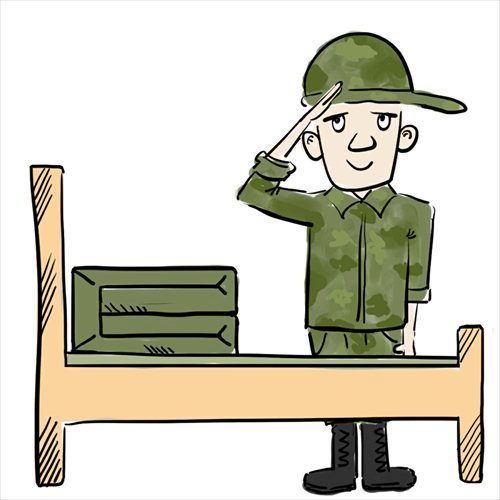
Illustration: Chen Xia/GT
Newly recruited Shanghai high school students and university freshmen are by national law subject to weeklong military training prior to starting the new semester.
These "play army" camps have been criticized and derided over the decade for either being too harsh on China's children or, as the Global Times Metro Shanghai's own foreign columnist Onat Kibaroglu wrote earlier this week, "a summer camp for the spoiled."
Most recently, a viral video on Chinese social media shows a teacher at Shandong's Rizhao Maritime Technical School humiliating and physically beating his students during their military training.
"If you don't respect discipline then you better go home," the teacher, who was quickly fired by the school once the video leaked online, is heard shouting.
As the mother of a teen girl, I myself was once skeptical toward student military training. Most teenagers growing up in Shanghai are from wealthy, only-child families, meaning they have been bred since birth to become little princes and princesses.
It's seemingly impossible to expect that in just one week of running around in camouflage that these kids will suddenly become selfless citizens.
When my husband and I were informed by our daughter's new high school that she and her classmates must attend military training for one week, our response was an uneasy mixture of cynicism and anxiety.
We doubted that she could personally benefit from pretending to be a soldier, and yet we knew that as a family unit we have a responsibility to not raise yet another "parasite child" who takes everything from family and society while contributing nothing back.
Because we are both working parents, our daughter was partially raised by her grandparents, which means she was spoiled and doted on until she actually believed herself to be royalty.
She's a great kid, but she desperately needs some discipline and teamwork experience. Military training, then, was perhaps our and her last chance at correcting the flaws of her sheltered upbringing.
After dropping her off, we kept a close eye on her progress via the WeChat groups established by her school teachers and other overly concerned "helicopter" parents.
Based on their constant comments about if the canteen food was any good, if the weather was too hot and if their exercise routines were too severe, it became immediately clear that most of my fellow Shanghai parents could not bear to see their precious children suffer.
It was almost humorous to me how dubious modern Chinese parents are of their child's school and teachers. Many don't seem to realize that if a teenager can't handle some criticism or rebuke from their teachers, then maybe the problem is not with the school but with the child and even themselves.
Even among the few parents who admitted their child's physical and emotional shortcomings, they still can't stand to see him or her get scolded or endure some much-needed mental and physical toughening up.
My daughter sent me a text message on the second day saying that she felt "tortured" for having to exercise in 35 C days.
I simply responded that she should stay strong, but secretly I was delighted to hear that, for the first time in her life, she was being put through some hardship.
I firmly believe that the more pain she endures, the more personal progress she will achieve, and even though her training was for a mere single week, I expected she would emerge a slightly stronger person.
Indeed, on her final day of training all the parents were invited to observe a group drill performance. Their faces were sunburned like a Tibetan, but we were very satisfied with her and her classmates' newfound camaraderie.
Most children get to go home after military camp and resume their lazy middle-class lives.
Fortunately for our daughter, her discipline training is not yet over, as she now begins three years of boarding school, which has a strict award-penalty evaluation system to ensure that students maintain what they learned at camp.
I think this is exactly what she and most other students of Shanghai need to cure their "spoiled-child illness."
The opinions expressed in this article are the author's own and do not necessarily reflect the views of the Global Times.

